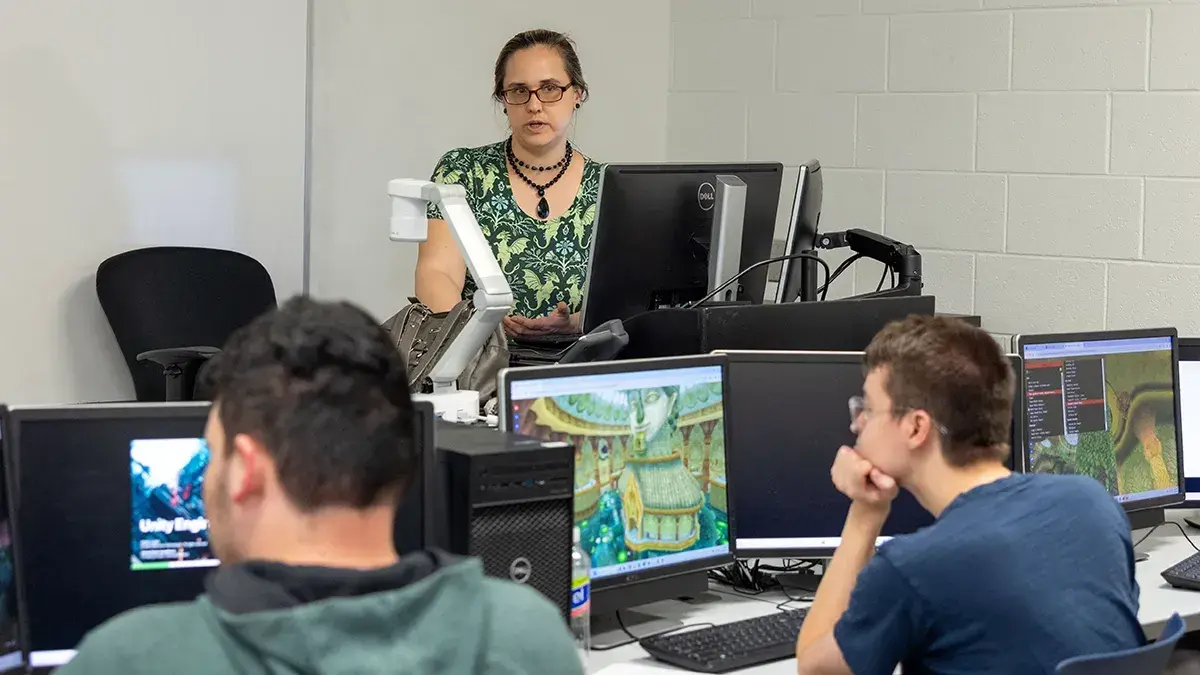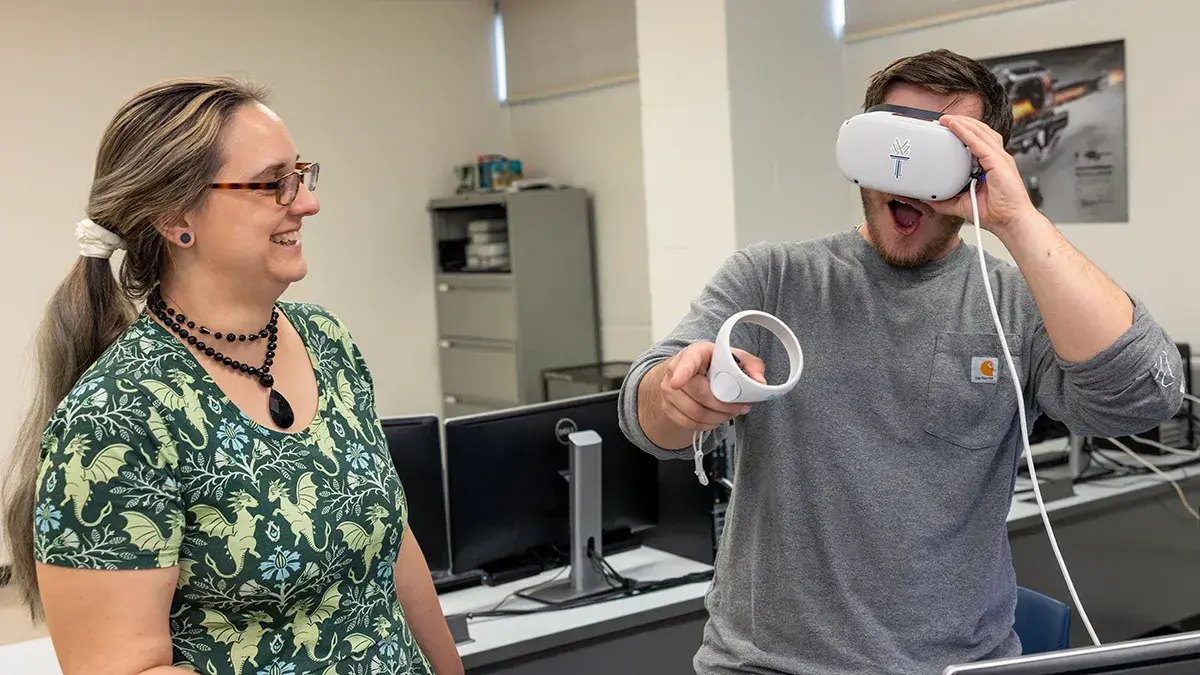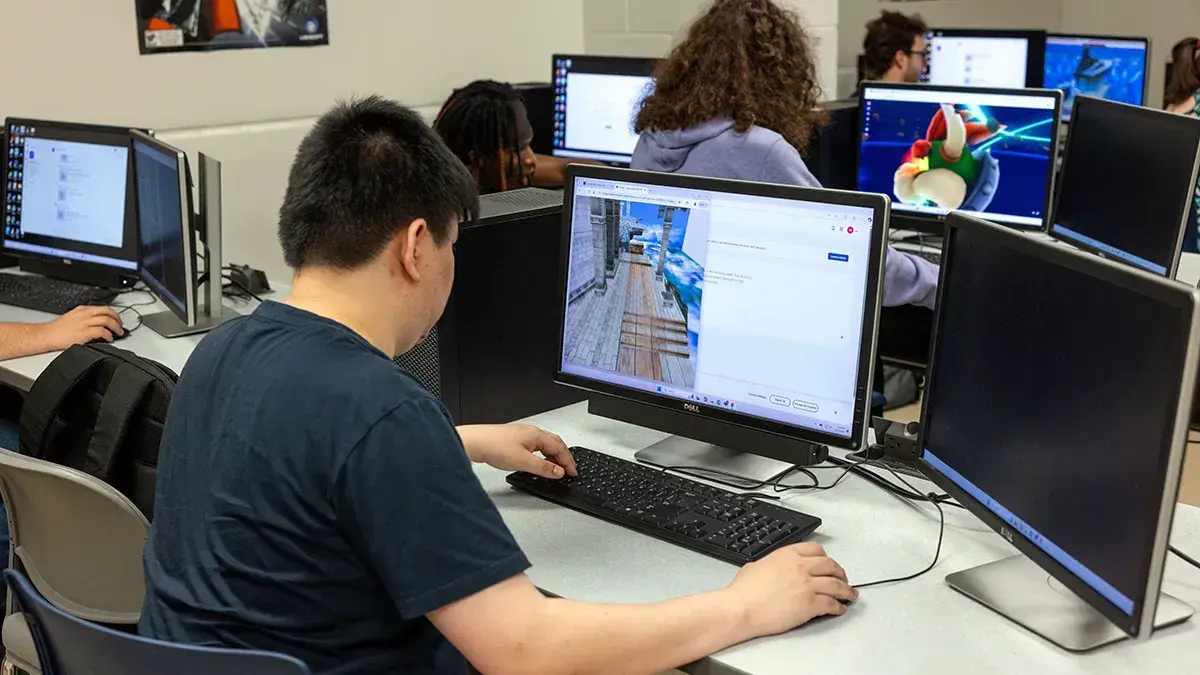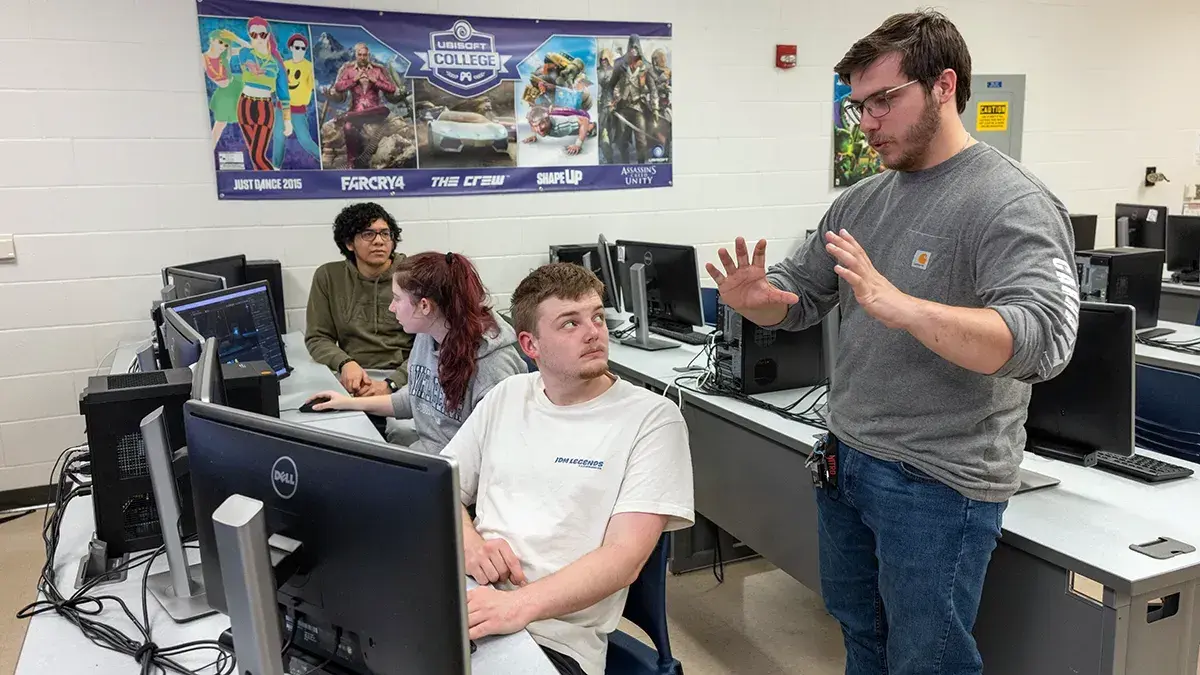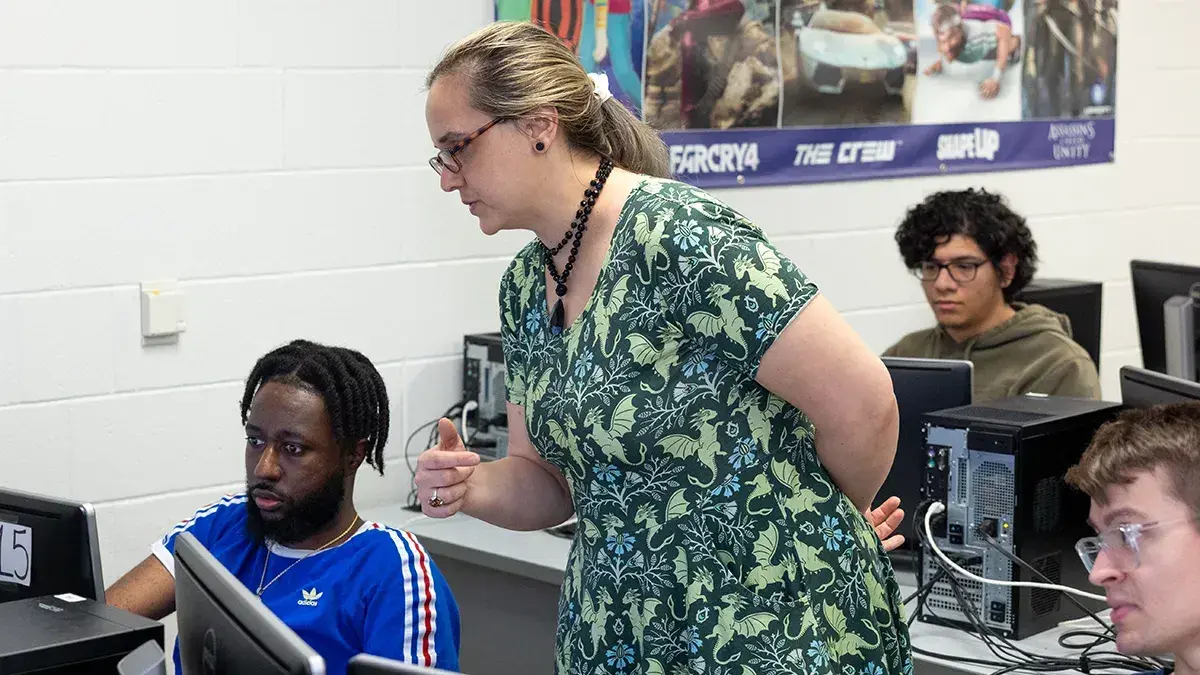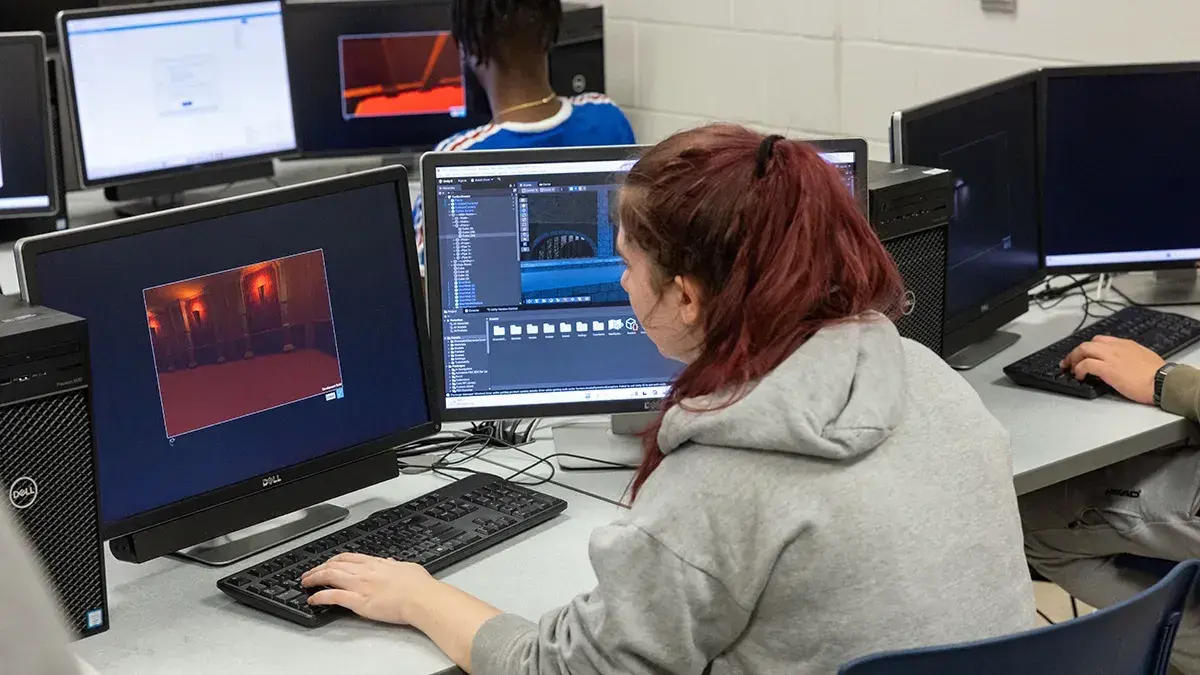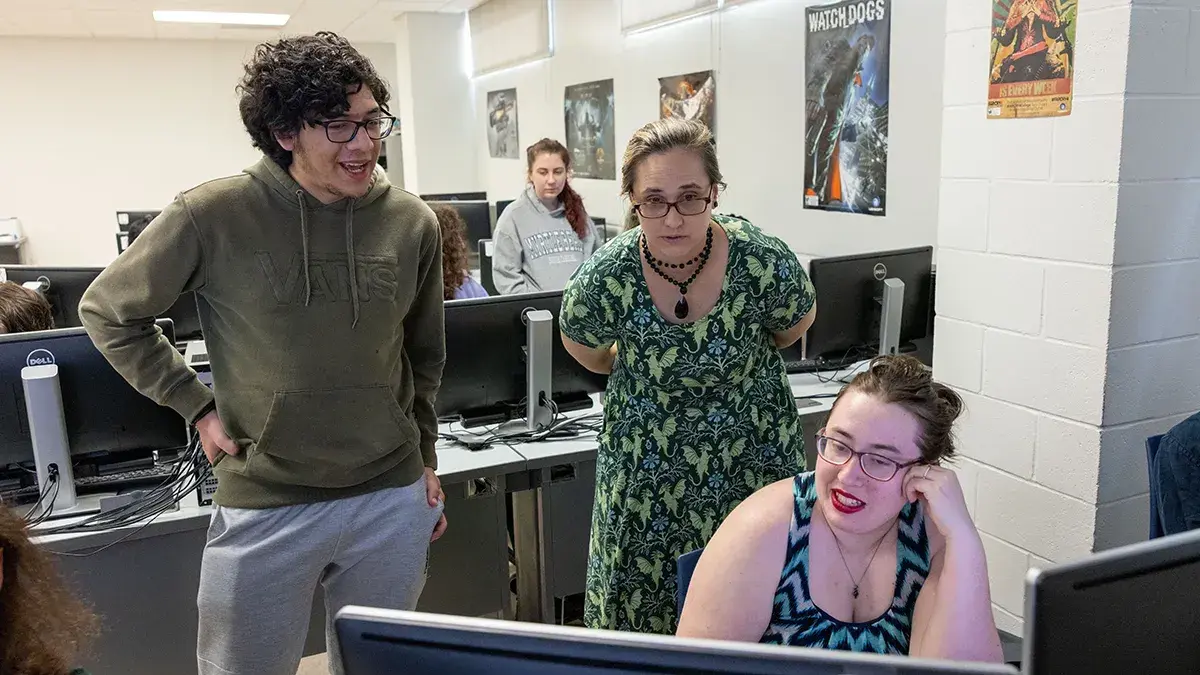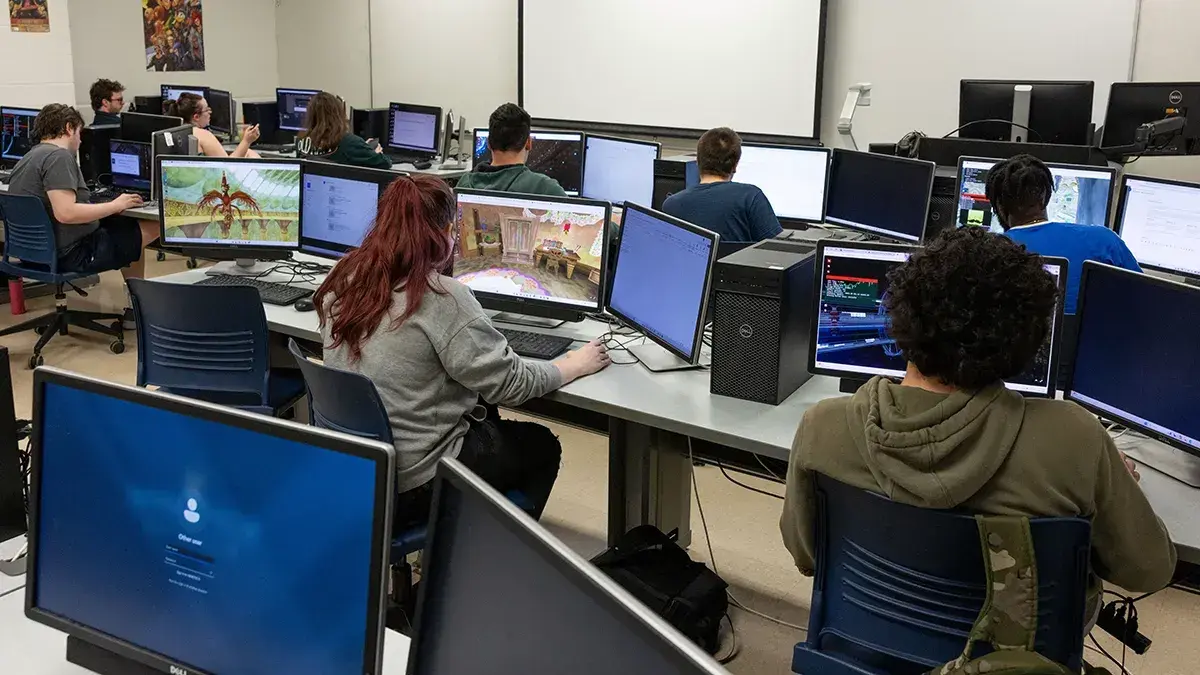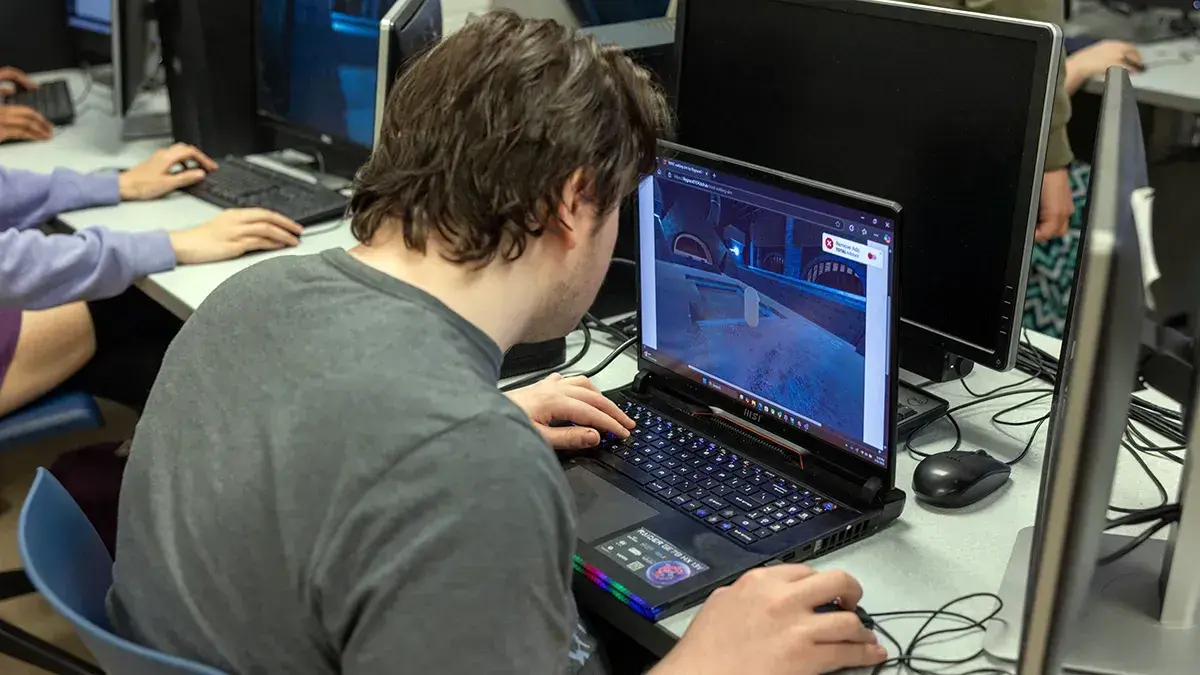Faculty Spotlight
Simulation & Game Development
Making Games More Than Child's Play
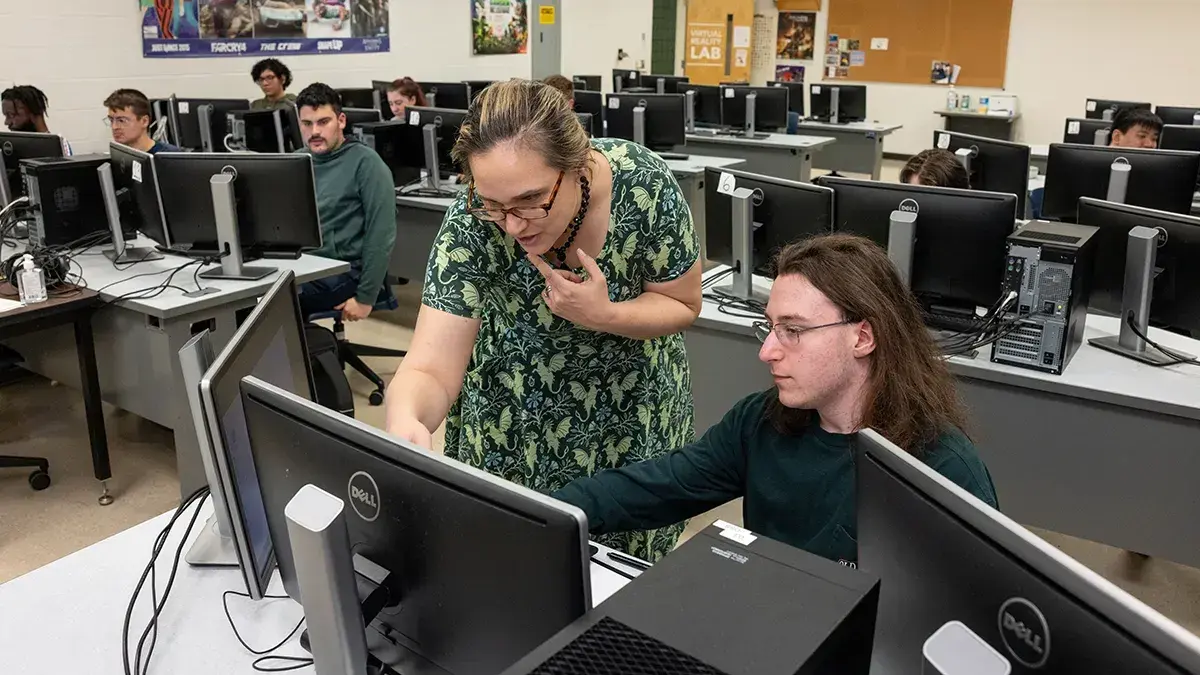
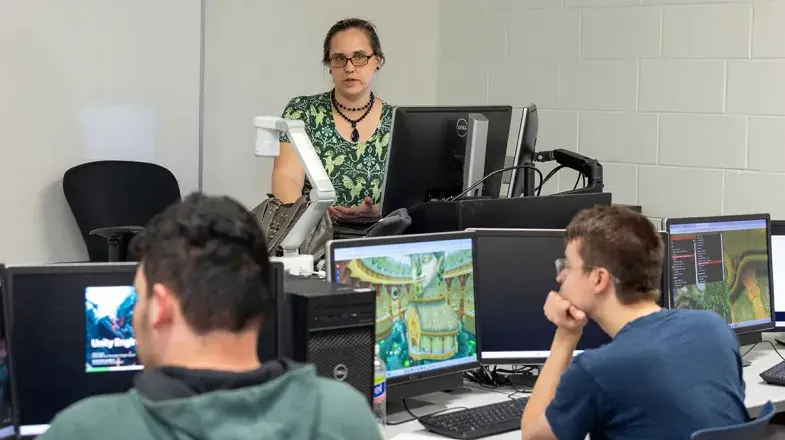
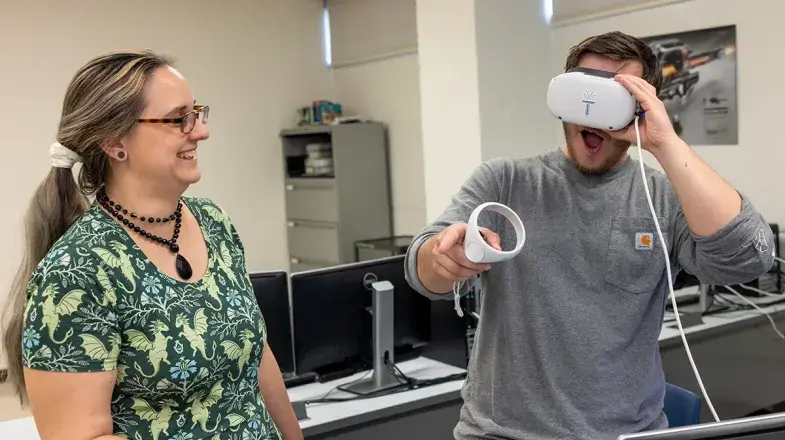
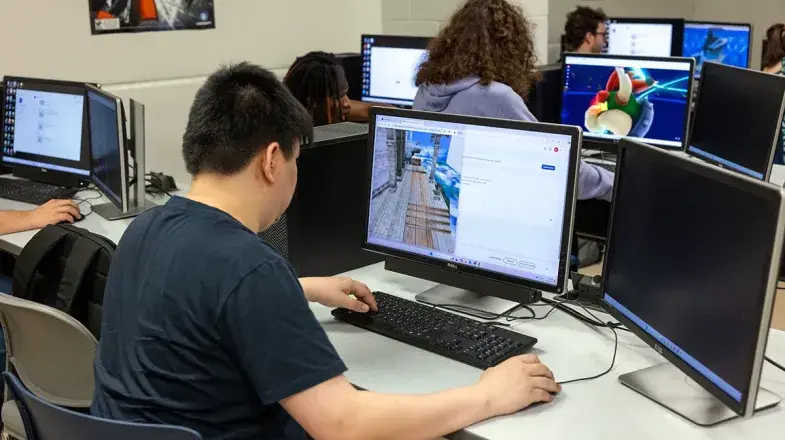
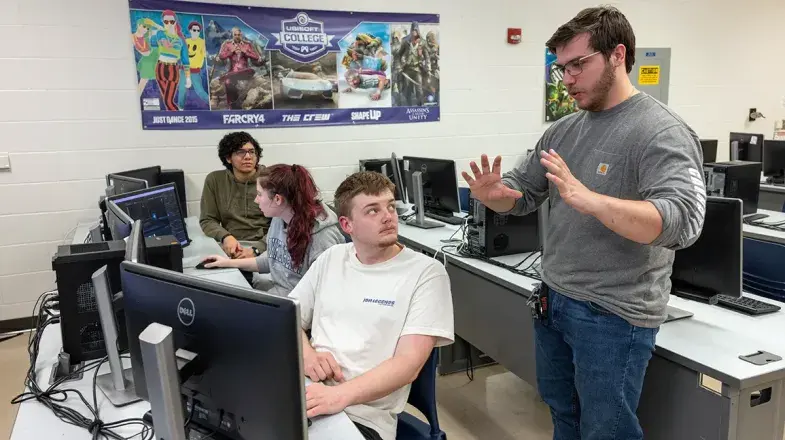
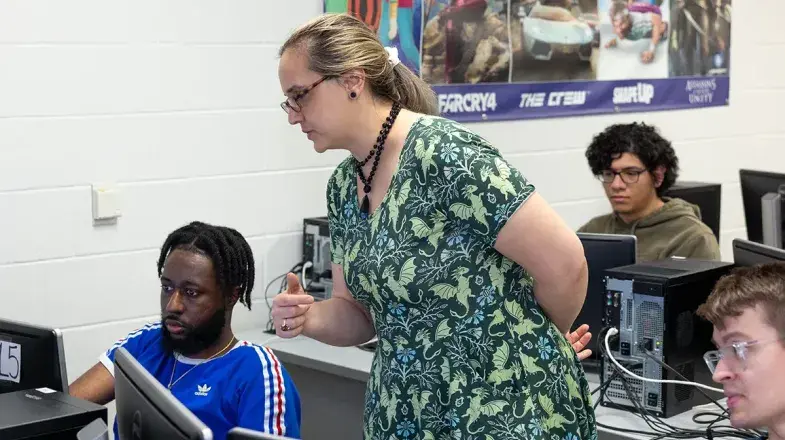
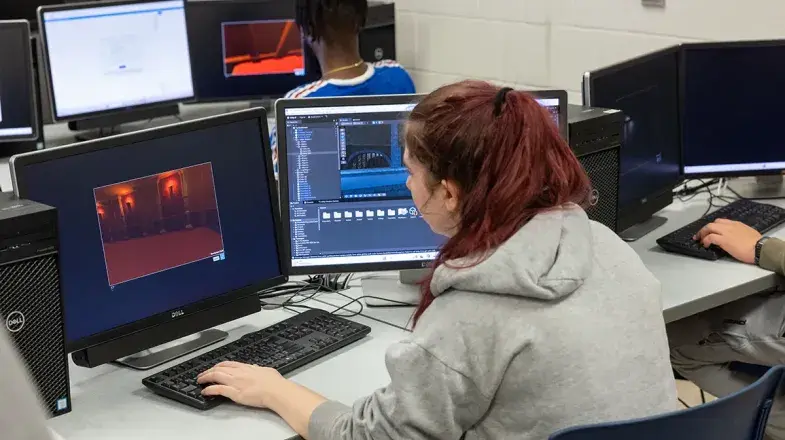
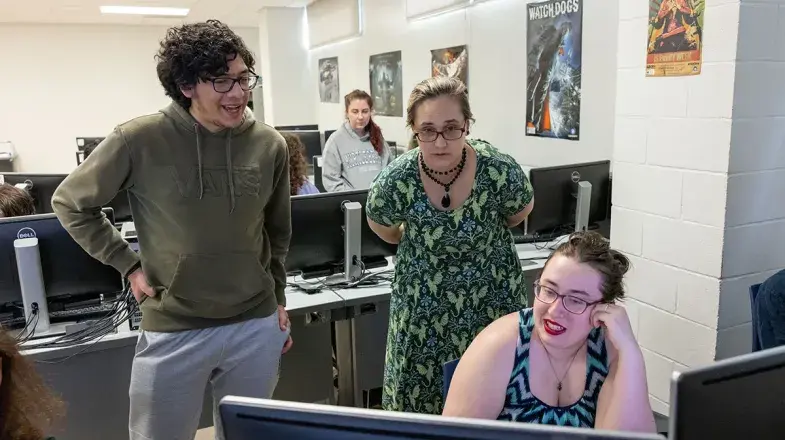
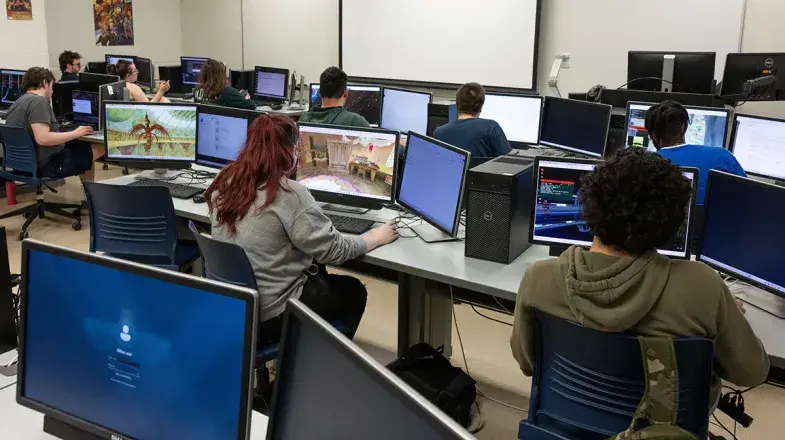
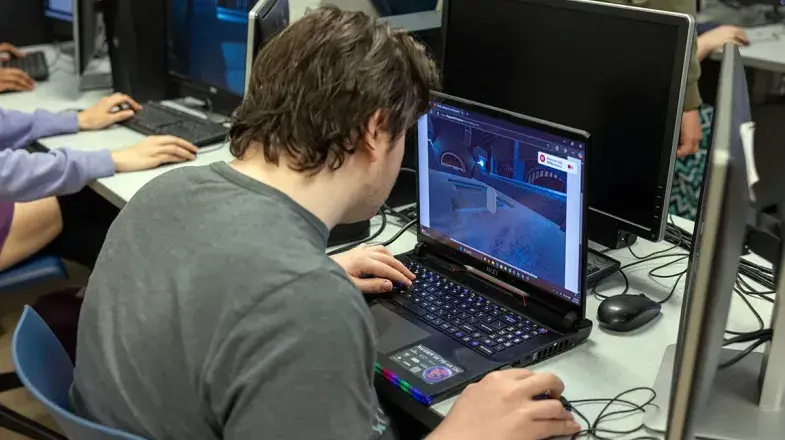
Amber Johnson has been around video games almost from the time she was in diapers.
"There's a photo of me playing Q*bert as a toddler," Johnson said, referring to the 1980s arcade game. "Games have always been part of my life."
After earning a bachelor's degree in media arts and animation, she went straight into the video game industry, forging a path as a woman in a male-dominated field. She worked several years as a lead artist, creating environments and levels for games such as Heroclix Online, Dexter: The Game and a virtual reality version of Colossal Cave.
"I always wanted to get into game design, putting an engine on top of animation," she said.
Designing and creating spaces for players to explore is her forte. "There's a lot of technical challenges to making an appealing environment that also runs efficiently."
As an associate professor of Simulation & Game Development at Wake Tech, Johnson now teaches students how to handle those challenges and gain the skills needed for the latest trends in game design.
In class, she guides students through scenes in Legend of Zelda, Colossal Cave and other games on a Nintendo Switch to demonstrate how designers repeat patterns in scenery and building details to simplify the computer code needed to generate a 3D environment.
"You're going to be looking at every game you play and analyzing it," she tells them.
When one student says he wants more design variation in a project he's working on, Johnson cautions him not to go overboard. "Think of it like stretching before you run," she says.
Johnson says it's sometimes difficult to translate skills needed for game development to a classroom setting, noting that students treat certain tasks as "busy work exercises."
"[These skills] don't fully click until you are out in industry working on a larger project with lots of other people," she said. "It's hard to scale large projects with multiple departments down to student-sized projects."
Johnson joined Wake Tech in 2014 after tiring of gaming company layoffs that routinely follow the completion of a new title. "The boom-and-bust cycle of game development isn't good if you want to put down roots," she said.
Teaching allows her to continue mentoring others, a role she enjoyed as she took on more senior roles at gaming companies.
"She looks at everyone's work individually and is very helpful if you're struggling," student Kadin Weaver said. "She gives a lot of good feedback."
"Having a woman as a professor is nice," student Lily Reid said. "It makes me believe I can succeed in the video game industry."
Johnson still keeps her hand in the business as a freelancer, such as working on a virtual reality skateboarding game. The work helps her stay up to date on technology and trends, such as VR and artificial intelligence, she says, adding that she believes game development is too much of an art for AI to take over the process completely.
"You can't just get code to spit out an environment that people want to explore," she said, confident that game development jobs will continue to be available for her students. "An artist's touch is still needed to make it worthwhile."
She also keeps up to date in the field through ongoing education. In 2025, she earned a master's degree in interactive media and design from North Carolina State University, where she won an academic excellence award.
For her family, the biggest perk of her freelancing may be the high-powered computers and new gaming consoles she brings home for her work.
Although the characters moving through various games on the Nintendo Switch in her classroom demonstration were always named "Amber," Johnson says she rarely plays anymore, outside of an occasional adventure game with her oldest son.
"Honestly, I don't have a lot of time to play games," she said with a sigh. "Too much going on."
